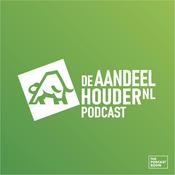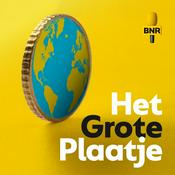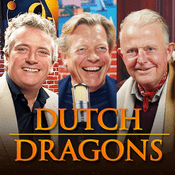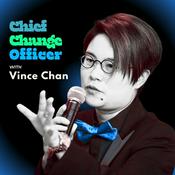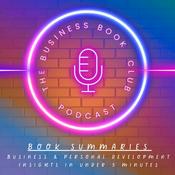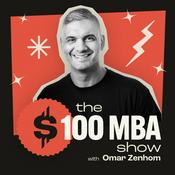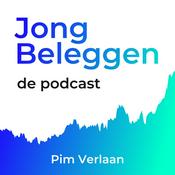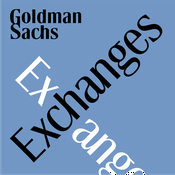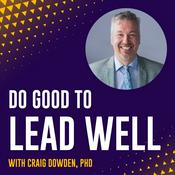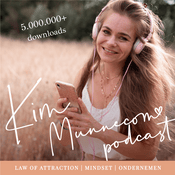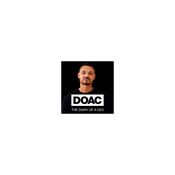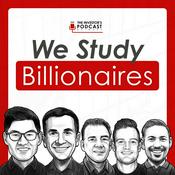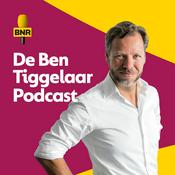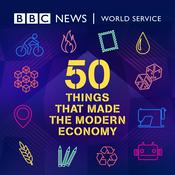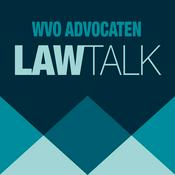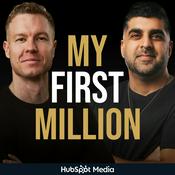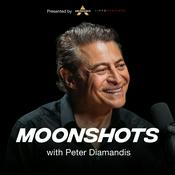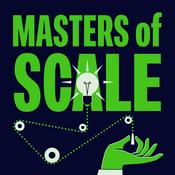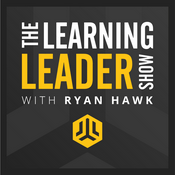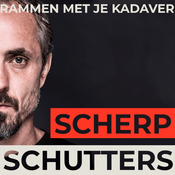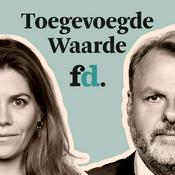268 afleveringen

Earning Trust with Tom Hacohen
08-10-2025 | 35 Min.
This week on The Business of Open Source, I spoke with Tom Hacohen, CEO and founder at Svix. We kicked off the conversation by talking about why Svix is an open core company… but Tom still initially didn’t think he’d be a good guest for the podcast. Unlike a lot of open source companies, Svix doesn’t make open source a huge part of its identity. Yes, there are business reasons for being an open source company, but the open source nature of the company isn’t plastered all over every piece of marketing material. So why does it matter? Developers prefer open source, and they’ll always choose the open source option if there is one. On the other hand, developers don’t often have buying power (and don’t even know how to buy software even if they did). But developers can influence buying decisions, and that can be important. We also talked about how there are different constraints that the open source project and the cloud version operate under. For example, ease of deployment doesn’t matter in the cloud version, because it doesn’t impact user experience at all. But the opposite is the case for the open source project, and that leads to different technical decisions. We talked about the problem getting information about people who use the open source project, because it is hard to get developers to talk. This is a puzzle that Tom says he still hasn’t cracked. Being an open source / open core company is a distraction, and it can be hard to manage externally and internally. We talked a lot about trust — how open source helps you earn trust, but you still need to earn and keep the trust. Want to talk more about the ins and outs of running open source businesses, and how open source companies win? Come to Open Source Founders Summit next May in Paris. And if you’re struggling to figure out how to monetize your open source company, you might want to work with me.

Go-To-Market for Open Source Companies with Quentin Sinig
24-9-2025 | 34 Min.
This week on The Business of Open Source, I spoke with Quentin Sinig, who has been the first “business” hire at three open source companies; Strapi, Kestra and now Pruna.ai. We covered a lot of ground in this conversation, which was especially interesting because it spanned three open source companies so we were able to talk about patterns Quentin saw at all of them, as well as how the ecosystem is changing now. We talked about the need to find product-market fit, particularly in the AI era — Quentin says that AI companies need to find product-market fit constantly, because the ecosystem is changing so quickly. Quentin mentioned hearing from an advisor earlier in his career that you can’t focus on both usage and revenue — but that in some ways you are forced to focus on both, especially now. When I asked how you decide which of the two goals you should throw more resources behind, he couldn’t say… it’s such a case-by-case decision that there isn’t an easy formula for deciding. Lastly, I had a burning question: What actually does go-to-market mean? And what does it mean to be a “Head of Go To Market?” Quentin says that to a large extent it’s a euphemism for sales, but there’s a little more to it than just that. In his mind, Go-To-Market is a much less siloed function than sales. It’s about getting the entire company aligned, in the expectation that ultimately that will lead to sales. But it’s not just about forcing prospects down the funnel or cold calling, either. Want to talk more about the specifics of go-to-market for open source companies, with people who have been there? You should join Open Source Founders Summit, an in-person conference for leadership in open source companies. The next edition will be May 18th and 19th, 2026 in Paris. And curious about my consulting options? Check out how I help open source companies here.

Open Foundations with Or Weis
17-9-2025 | 37 Min.
This week on The Business of Open Source, I spoke to Or Weis, the CEO and co-founder of Permit.io. Or is a serial entrepreneur who has had a long career in developer tools. We talked about Permit’s relationship with open source, including of course the open source projects that they create and maintain. One thing to note is that none of Permit’s open source projects are branded as “Permit.” They are all separate from the permit.io brand. On the other hand, Or talked about the essential balancing act for open source companies… figuring out the balance between what goes in the open source project and what goes in the commercial offering. “Companies that get it wrong die, and companies that get it right end up flourishing,” he said. Or Weiss has a theory about open source businesses that he calls ‘open foundations.’ He thinks that this model is better than open core — to be honest I think open foundations is a type of open core, but I think that Or’s argument about how to do open core are fundamentally correct. Permit’s primary open source project is OPAL, and the way that Or puts it is that Permit uses OPAL, but it is not OPAL. The two pieces of software are different and have different value propositions. He also talked about how important it is for everyone to understand what features belong in the project and what belongs in the product… by ‘everyone’ he means product managers in your team but also members of the open source community. We also talked about how you have to have a moat for your product, and especially with AI coding tools a lot of models do not have a moat anymore. Which is why he doesn’t think that just SSO and a fancy UI are enough of a difference between project and product anymore. If you are interested in having more conversations about building open source businesses, join us next May in Paris at Open Source Founders Summit!

Straddling open source software and the hardware industry with Rob Taylor
10-9-2025 | 34 Min.
This week on The Business of Open Source, I spoke with Rob Taylor, CTO/CSO and founder of ChipFlow. Although ChipFlow is unambiguously a software company, it creates software that facilitate the creation of semiconductors, so it straddles the software and hardware worlds.Some of the things we talked about include: The state of open source in the semiconductor space, and why that matters. A large part of it is the high cost of proprietary software for chip design, and the fact that there are a lot of barriers to entry, both for the design software and to chip creation. Rob also talked about how an open source approach is the only way to bridge between research institutions and universities and the commercial world — too often, researchers would do brilliant work during a Ph.D. program and then it would be completely lost when they entered the commercial world. On the other hand, open source is little-known and mistrusted in the semiconductor space. Rob described it as a marketing liability, which is why it’s downplayed on the company webpage. —> I come across this more often than is often recognized inside the open source bubble. It’s one thing to build an open source company in the software infrastructure space, where open source has a positive reputation and is often seen as simply table stakes; it’s quite another to build an open source company in a conservative industry where open source doesn’t have a positive image. Perhaps the most interesting thing is that this means you have to have a reason other than marketing to build and maintain the open source project. Want to join others to talk about the challenges and opportunities in building open source companies? Join us at Open Source Founders Summit next spring in Paris.

The double-edged sword of big initial customers with Taco Potze
03-9-2025 | 39 Min.
This week I’m back from vacation and I have a new episode of The Business of Open Source, with Taco Potze! Taco is the co-founder and CEO of Open Social. A couple interesting takeaways from our conversation: When you’re transitioning from a services company to a product company, it’s much easier if the product you work on is connected to the services your clients are already paying for. Landing a huge customer, particularly if it’s your first customer, can be a double-edged sword. On the one hand you have a lot of revenue, but you also risk becoming your customer’s servant and losing control of your product’s roadmap. You can’t do everything; and particularly you can’t build a product that meets the needs of small, medium and large organizations. Sometimes you need to re-launch / reposition. Open Social recently completely changed their positioning earlier this year in response to changes in the marketplace and how their customers were use the product. Customers might not care about open source, but they care very much about lock-in, exit costs, and data sovereignty. This is all a part of risk management that CIOs are thinking about a lot. Some organizations use both the self-hosted and the SaaS product. One of the biggest / most instructive mistakes they made was maintaining completely separate codebases. When they invested in merging the codebases, it dramatically improved the customer experience in relation to updates, bug fixes and simplicity of the engineering effort. We talked about Open Source Founders Summit at the end — and which is where I first met Taco. If you’re interested in joining us in 2026, sign up for the newsletter! Tickets will be on sale soon.
Meer Zaken en persoonlijke financiën podcasts
Trending Zaken en persoonlijke financiën -podcasts
Over The Business of Open Source
Luister naar The Business of Open Source, Beurs en beleggen podcast De Aandeelhouder en vele andere podcasts van over de hele wereld met de radio.net-app
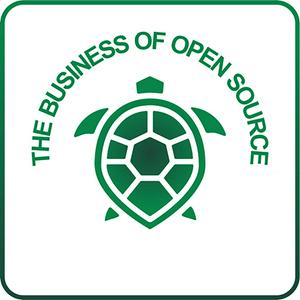
Ontvang de gratis radio.net app
- Zenders en podcasts om te bookmarken
- Streamen via Wi-Fi of Bluetooth
- Ondersteunt Carplay & Android Auto
- Veel andere app-functies
Ontvang de gratis radio.net app
- Zenders en podcasts om te bookmarken
- Streamen via Wi-Fi of Bluetooth
- Ondersteunt Carplay & Android Auto
- Veel andere app-functies


The Business of Open Source
download de app,
luisteren.
